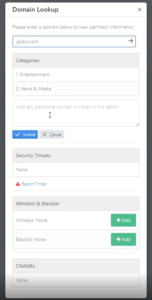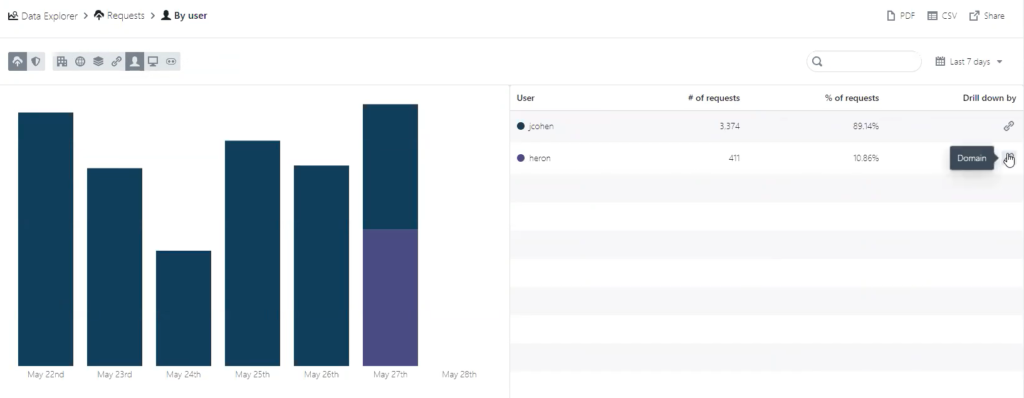Introducing Active Directory (and more!)
by Serena Raymond on Jun 3, 2020 12:00:00 AM
After months of work and beta testing, our Active Directory integration has arrived.
The juicy Active Directory details
Now when you login to your DNSFilter account, you’ll see two new sections under “Deployments”:
You will begin your integration by using “Sync Tools.”
Navigate to the “install” tab and follow the instructions to download to your desktop. Watch the video above for more details and best practices around things like copying the site key.
Once you’ve finished your installation, go to “Collections” to add your first collection. After you create that first collection, you’ll see that all of your Active Directory groups are now synced to this section. So you select individual users or groups and create new collections.
Once you’ve created your first collection, you can apply policies and block pages from the main “Collections” page.
If you have multiple users in different collections, prioritize your collections using the drag-and-drop feature so that the most important policy is always enforced.
Active Directory is only the beginning
As we built our Active Directory integration, a lot of thought was put into other directory services that our customers are likely to need in the future. Because everyone works differently. So Active Directory (and Azure Active Directory) may be first, but it won’t be the last.
As time goes on, we’ll add more Active Directory services like Google Cloud IAM, Sambra, and OpenLDAP.
If you’re eager to learn more, we are hosting a webinar on Active Directory on Thursday, June 11 at 1 p.m. ET.
A few more goodies
We haven’t been hard at work on just Active Directory! While that’s our big news this week, we also added new capabilities under “Domain Lookup.”
Previously, when a user wanted to report a site as a threat or label a site miscategorized, the alerts were simply sent to DNSFilter. Now, you have the option to add some notes about what you saw and why you think something is a threat.
The other feature we’ve added has to do with Data Explorer. We’re continuing to make improvements to our reporting over time, and in this release we’re addressing a customer ask that we’ve seen a few times.

Customers using Roaming Clients can now drill down by domain in the user view. This enables you to see the specific domain, number of requests, and percentage of requests all by specific users using the same device.

We’re so excited to bring more functionality to our users, and Active Directory is a big step. I want to encourage everyone to keep providing feedback as you test Active Directory and other new features.
One final shoutout to our beta testers who provided invaluable feedback during the process.
Watch our Active Directory webinar
 The Big Game, Olympic Mania: Navigating the Surge in Malicious Sports Betting Sites
The Big Game, Olympic Mania: Navigating the Surge in Malicious Sports Betting Sites
With the Super Bowl and 2026 Winter Olympics coinciding, all eyes have been on the world of sports in February. And with that comes some unfortunate realities: Scammers take advantage of seasonal events like this every way they can.
 6 Security-Focused New Year’s Resolutions for 2026
6 Security-Focused New Year’s Resolutions for 2026
The start of a new year is the perfect time to reset habits—not just personal ones, but digital habits too. Cybercriminals don’t need zero-days or nation-state tooling if we keep handing them easy wins through reused passwords, oversharing, and rushed reactions.

